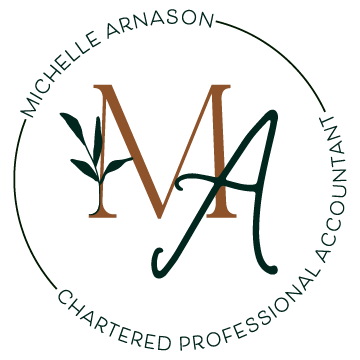Key Tips for Entrepreneurs and Small Business Owners
Tax season can be a daunting time for entrepreneurs and small business owners in Canada. Understanding the intricacies of the tax landscape and staying compliant with ever-changing regulations is crucial for both financial success and peace of mind. In this blog post, we'll explore some essential tips to help entrepreneurs and small business owners navigate the Canadian tax system effectively and optimize their tax strategies.
Organized Record-Keeping:
Keeping organized and accurate financial records is the foundation of a smooth tax-filing process. Establish a reliable record-keeping system from the outset, including properly categorizing income, expenses, receipts, and other financial transactions. Utilize accounting software or hire a professional bookkeeper to ensure your records are up-to-date and easily accessible. Well-organized financial data not only simplifies tax preparation, but also provides valuable insights into your business's financial health and performance.
Maximize Deductions and Credits:
The Canadian tax system offers numerous deductions and credits that can significantly reduce your tax liability. Familiarize yourself with applicable tax deductions for small businesses, such as expenses related to home offices, business travel, and equipment purchases. Additionally, explore potential tax credits for hiring apprentices, investing in research & development, or supporting eco-friendly initiatives. By leveraging these opportunities, you can optimize your tax position and retain more of your hard-earned money.
Stay Informed about Tax Changes:
The Canadian tax landscape is subject to constant updates and revisions. As a responsible business owner, it's crucial to stay informed about any tax law changes that may affect your business. Regularly review updates from the Canada Revenue Agency (CRA) and consult with a tax professional to understand how these changes impact your tax planning. Being proactive in adapting to new regulations can prevent compliance issues and financial surprises down the road.
Separate Personal and Business Finances:
For entrepreneurs and small business owners, separating personal and business finances is essential. Having a dedicated business bank account and credit card helps maintain clear financial boundaries, making it easier to track business expenses accurately. Not only does this simplify tax preparation, but it also demonstrates professionalism and can safeguard you from personal liability in the event of any legal issues or audits.
Explore Tax-Deferred Retirement Plans:
Retirement planning is as crucial for entrepreneurs as it is for any other individual. In Canada, consider contributing to tax-deferred retirement plans, such as the Registered Retirement Savings Plan (RRSP). These plans offer tax benefits while allowing you to save for your retirement years. As a business owner, it's essential to plan for your financial security beyond the lifespan of your business.
Navigating the Canadian tax landscape doesn't have to be an overwhelming experience for entrepreneurs and small business owners. By adopting these key tips, you can proactively manage your tax obligations and position your business for financial success. Remember to seek guidance from a qualified tax professional who can provide personalized advice tailored to your specific business needs. With a solid understanding of the tax system and proactive tax planning, you can focus on growing your business and achieving your long-term financial goals.

